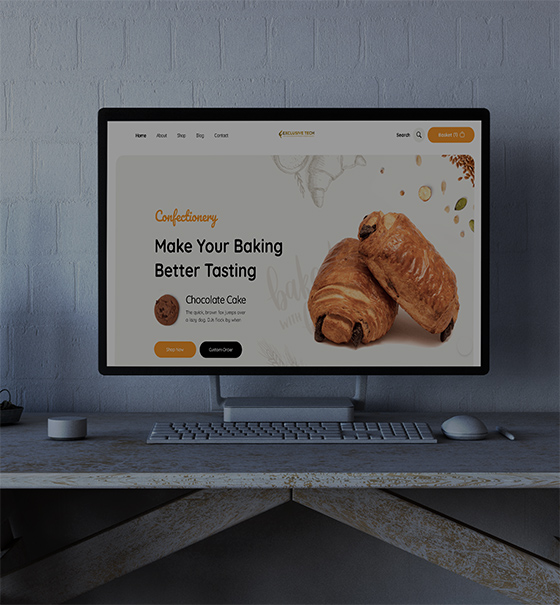
Blogs
Automation Assassinates Manual

Automation Assassinates Manual: How Smart Businesses Are Leaving Competitors Behind
In today's fast-paced business environment, the difference between industry leaders and those struggling to survive often comes down to one critical factor: automation. South African innovators Gold Reef City, SK Cinema, and Bathu have revolutionized their respective industries by strategically automating processes that competitors still handle manually, resulting in dramatic improvements in efficiency, customer experience, and profitability.
Their success stories reveal not just the competitive advantage automation provides, but also how different implementation approaches can be tailored to specific business needs—offering valuable lessons for companies still relying on manual processes in an increasingly automated world.
The Automation Revolution: Why Manual Processes Are Becoming Liabilities
Remember when "good customer service" meant having more staff available to handle tasks? That era is rapidly disappearing. Today's consumers expect instant service, minimal friction, and 24/7 availability—demands that manual processes simply cannot meet cost-effectively or consistently.
The numbers tell a compelling story: Businesses using automation report 30-40% lower operational costs, 40-60% reduction in process time, and significantly higher customer satisfaction scores compared to industry peers relying on manual processes.
What was once a competitive advantage is now becoming a basic requirement for survival. Companies clinging to manual processes face a triple threat:
- Higher operational costs eating into profit margins
- Slower response times frustrating customers
- Inability to scale without proportional increases in staffing
Meanwhile, automated competitors can redirect resources from repetitive tasks to high-value activities that drive growth and innovation. As the automation gap widens, manually-operated businesses find themselves in an increasingly unsustainable position.
The Hidden Costs of Manual Operations
Beyond the obvious inefficiencies, manual processes carry hidden costs that compound over time:
- Data entry errors (which occur in approximately 4% of manual entries)
- Employee burnout from repetitive tasks
- Inconsistent customer experiences
- Limited business intelligence due to fragmented data collection
- Inability to operate outside business hours
These costs accumulate silently until they reach a breaking point—often when a more agile, automated competitor enters the market and exposes these weaknesses.
Consider the typical scenario at a manually-operated theme park: Long queues form at ticket counters, staff struggle to handle peak demand, customers grow frustrated before even entering the park, and valuable data about customer preferences remains uncaptured. This scenario played out countless times before Gold Reef City decided there had to be a better way.
Automation Success Stories: Gold Reef City's 100% Digital Transformation
Gold Reef City transformed the traditional theme park experience by taking ticket sales entirely online—a bold move that eliminated on-site ticket purchases completely. This wasn't just a digital add-on to existing processes; it was a comprehensive reimagining of the customer journey.
The results speak for themselves:
- Average entry time reduced by over 70%
- Customer satisfaction scores increased by 38%
- Staff redeployed from ticket booths to enhancing in-park experiences
- Rich data collection enabling personalized marketing and targeted promotions
The system now works seamlessly: visitors purchase tickets online, receive digital confirmations, and simply present these upon arrival to receive their access wristbands. What was once a friction-filled start to a day of entertainment has become nearly invisible—allowing guests to focus on enjoyment rather than administration.
Most importantly, this 100% digital approach has given Gold Reef City unprecedented flexibility in pricing strategies, capacity management, and special promotions—advantages that would be logistically impossible with manual ticket sales.
SK Cinema: The Hybrid Automation Approach
SK Cinema took a different approach to automation, creating a system that caters to both digital-native customers and those who prefer on-site interactions. Their online platform allows customers to purchase tickets, select seats, order 3D glasses, and pre-order concessions—creating a frictionless experience from booking to viewing.
For customers who prefer purchasing on-site, SK deployed self-service kiosks that replicate the online experience, maintaining the efficiency of automation while accommodating different customer preferences.
This hybrid approach yielded impressive results:
- 67% of bookings now occur online, reducing counter staff requirements
- Concession pre-orders increased average transaction value by 22%
- Data analytics from both online and kiosk purchases provide insights into viewing preferences
- Staff redeployment to customer experience roles improved satisfaction metrics
SK Cinema's strategy demonstrates that automation doesn't have to be an all-or-nothing proposition. By automating processes while maintaining multiple access points, they've created a system that maximizes efficiency while accommodating customer preferences.
This is quite important, especially at a time where more people are opting to stream movies than watch a movie premier at the cinema. The other good thing is that once a customer make payment online, they now have a commitment to go watch the movie, as opposed to waiting for the date and then not feel like going.
E-Commerce and Physical Retail Automation: Bathu Creating Omnichannel Excellence
Footwear brand Bathu has masterfully blended physical retail with e-commerce automation, creating a seamless experience regardless of how customers choose to shop. Their physical stores span major centers across South Africa, while their online platform offers nationwide delivery—sometimes as quickly as the next day.
What sets Bathu apart isn't just offering multiple shopping channels but creating an integrated automation ecosystem that:
- Synchronizes inventory across online and physical locations
- Automates order processing status updates to customers
- Integrates customers into an engagement system regardless of purchase channel
- Uses purchase data to inform product development and targeted marketing
This approach recently helped Bathu celebrate their 1 millionth online order—a milestone that underscores the success of their automation strategy. By maintaining physical stores while building robust e-commerce automation, Bathu gives customers maximum convenience while collecting valuable data from all interaction points.
The Automated Customer Journey
What Bathu understood instinctively is that automation shouldn't end at the purchase. Their system automatically:
- Confirms orders instantly
- Provides tracking information
- Sends delivery notifications
- Follows up for product feedback
- Re-engages customers with personalized recommendations
This end-to-end automation creates a continuous customer journey that builds loyalty and increases lifetime value. Even customers who initially purchase in-store are incorporated into this automated ecosystem, receiving product care tips, exclusive offers, and early access to new releases.
By automating these touchpoints, Bathu maintains customer relationships at scale without requiring proportional increases in customer service staff—allowing team members to focus on resolving complex issues rather than handling routine communications.
Choosing Your Automation Strategy: Determining Your Optimal Automation Approach
The automation success stories of Gold Reef City, SK Cinema, and Bathu highlight an important truth: there's no one-size-fits-all approach to automation. Each company chose an automation strategy aligned with their specific business model and customer expectations:
- Gold Reef City's 100% digital approach eliminated inefficiencies completely
- SK Cinema's hybrid model preserved choice while improving efficiency
- Bathu's omnichannel integration created seamless experiences across touchpoints
For businesses contemplating automation, the key questions to ask are:
- Which processes create friction for customers or inefficiency for operations?
- Do your customers expect in-person options, or would they embrace a fully digital experience?
- What data could you capture through automation that would improve decision-making?
- Which manual processes are most error-prone or time-consuming?
- How would staff roles evolve if repetitive tasks were automated?
The answers to these questions will guide your automation approach—whether that means fully digital transformation, hybrid systems, or omnichannel integration.
Measuring Automation Success
Effective automation isn't just about implementing technology—it's about measuring outcomes and continuously optimizing. Successful automation initiatives track metrics in three key areas:
1. Operational efficiency:
- Process completion time
- Error rates
- Labor hours saved
- Cost per transaction
2. Customer experience:
- Customer satisfaction scores
- Reduction in wait times
- Completion rates for self-service processes
- Net Promoter Score improvements
3. Business intelligence:
- Data capture completeness
- Insights generated from automated processes
- Decision-making improvements
The most successful automation implementations create virtuous cycles where efficiency gains fund further improvements, customer experience enhancements drive increased usage, and business intelligence leads to more targeted offerings.
The Path Forward
The contrast between automated businesses and their manual counterparts grows more stark each year. While Gold Reef City, SK Cinema, and Bathu demonstrate what's possible with strategic automation, countless competitors continue to struggle with paper forms, manual data entry, and disconnected systems.
The fundamental question for businesses still operating manually isn't whether to automate, but how quickly they can implement automation before the competitive gap becomes insurmountable. As automation technologies become more accessible and customer expectations continue to rise, the window for catching up narrows.
The good news is that automation doesn't require reinventing your entire business overnight. Strategic implementation focusing on high-impact processes can deliver significant benefits while building momentum for broader transformation. Whether you choose to fully digitize like Gold Reef City, create hybrid systems like SK Cinema, or build omnichannel experiences like Bathu, the important step is beginning the automation journey.
For entrepreneurs and business leaders navigating these decisions, comprehensive consultation can provide invaluable perspective on which processes to automate first and which approaches will yield the greatest returns. By partnering with technology experts who understand both automation capabilities and business operations, companies can accelerate their transformation while avoiding costly missteps.
The businesses that thrive in the coming decade won't be those with the most employees or the longest history—they'll be those that most effectively deploy automation to eliminate friction, enhance experiences, and unlock insights. The question isn't whether automation will transform your industry, but whether your business will lead that transformation or be left behind.
Book Free Business Consultation with Exclusive Tech
The most valuable asset a business can ever have is not its properties, rather, it is the information it have, along knowing how to effectively and efficiently adopt this information into a winning business strategy
If you are an entrepreneur trying to find your footing in the automation world, yet not sure where to start, you can Book a Free Business Consultation with Exclusive Tech today, and get comprehensive insights with actionable plan
About Exclusive Tech
Double Your Brand Sales & Lead Generation with Exclusive Tech
View all posts by Exclusive Tech







